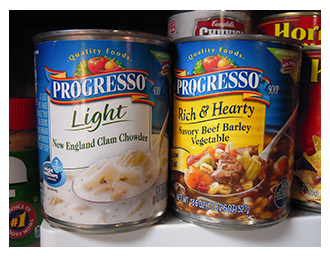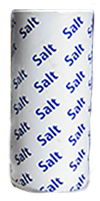All things evil are not black! Clearly. Indeed, some of the great evils of the world are white: sugar, salt, and processed flour.
It is not that they have no value, but that they have been made harmful do to the way they are used. In my view, salt is the worst.
Salt Is An Invasive Ingredient
One of my interests is gardening. In fact I have worked with Minnesota Master Gardeners now for twenty years. One of our ongoing concerns has always been invasive plants.
One of these invasive plants, buckthorn, originally occupied a large area on my property when we bought it. Fortunately, after considerable work and expense, we ridded ourselves of it for the most part.
Unfortunately, I have not had such good luck getting rid of this invasive ingredient in our food, excessive salt. That is why I decided to rant a little in this post about salt—to vent a little.
Why I Find Salt So Challenging
Salt is like an invasive plant in many ways.
- Its excessive use has spread rapidly.
- Its widespread use is is harmful to its environment, in this case our bodies.
- It is hard to get rid of.
Almost everyone knows that the over use of salt is a major contributor to any number of health issues. For a real eye opener read Health Risks and Disease on the Harvard School of Public Health site.
What irritates me is the fact that all of this is well known, yet food producers still add excessive amounts of salt to almost every processed food. Yes, we understand the preservative values and the like, but that does not mean the practice is acceptable. And it is not just a little salt we are talking about, it is really an overwhelming amount.
Two of my favorite soups are from Progresso. New England Clam Chowder (light) is really great for weight loss diets. It has only 100 calories per one cup serving, 200 for the whole can which makes a meal for me. Their Savory Beef Barley Vegetable has the same. Both taste great.
But look at this! The first has 690 mg of salt per serving (29% of recommended daily salt intake) and the second has 670 mg (27%). Double that for a two cup meal and in either case you get almost two-thirds of your daily salt allowance for just this one food.
If this were an exception rather than the rule it would be one thing, but it is not. It is almost impossible to avoid eating way too much salt with processed foods whether canned or frozen because it is found almost everywhere.
What Can We Do About Salt?
Is there any way to combat the issue of excessive salt? I have no good answers. This is why I refer to this post as a rant. I do have some suggestions (in addition to the obvious recommendation to avoid adding salt to anything) for things that help, but not everyone will like them. I know I don’t.
First there is the option of offsetting (to a degree) the effects of salt by making sure you are getting plenty of potassium. In the Harvard Health article mentioned above there is an interesting discussion of how potassium protects us from some of the consequences of excess salt. This is not totally effective by any means but it can help.
Second, there is one really effective solution. I have no problem with it as a solution but find it difficult because of my busy schedule. It is to cook your own food from scratch as an alternative to using processed foods at all.
While I have always had an interest in cooking and enjoy what little I do, I have a lot of interests and a laundry list of things I would like to do if I had the time. And cooking with fresh ingredients does take time, a good bit of it. But no doubt about it, it is the best solution to the problem.
Finally, what most of us will do as best we can. We can keep checking nutrition labels watching for salt content with a determination to replace high salt content products with others containing less whenever we can. It may seem hopeless at times, but by consistent effort we can make a significant difference.
Solving the Salt Dilemma
All we can do is to do all we can. We are not likely to ever feel successful at getting our salt intake down to a reasonable level, but if we work at it we may do a decent job of it.
In addition, if we keep talking about it and promoting change, perhaps food processors will begin to listen and begin to reduce the amount of salt they put into their products.



